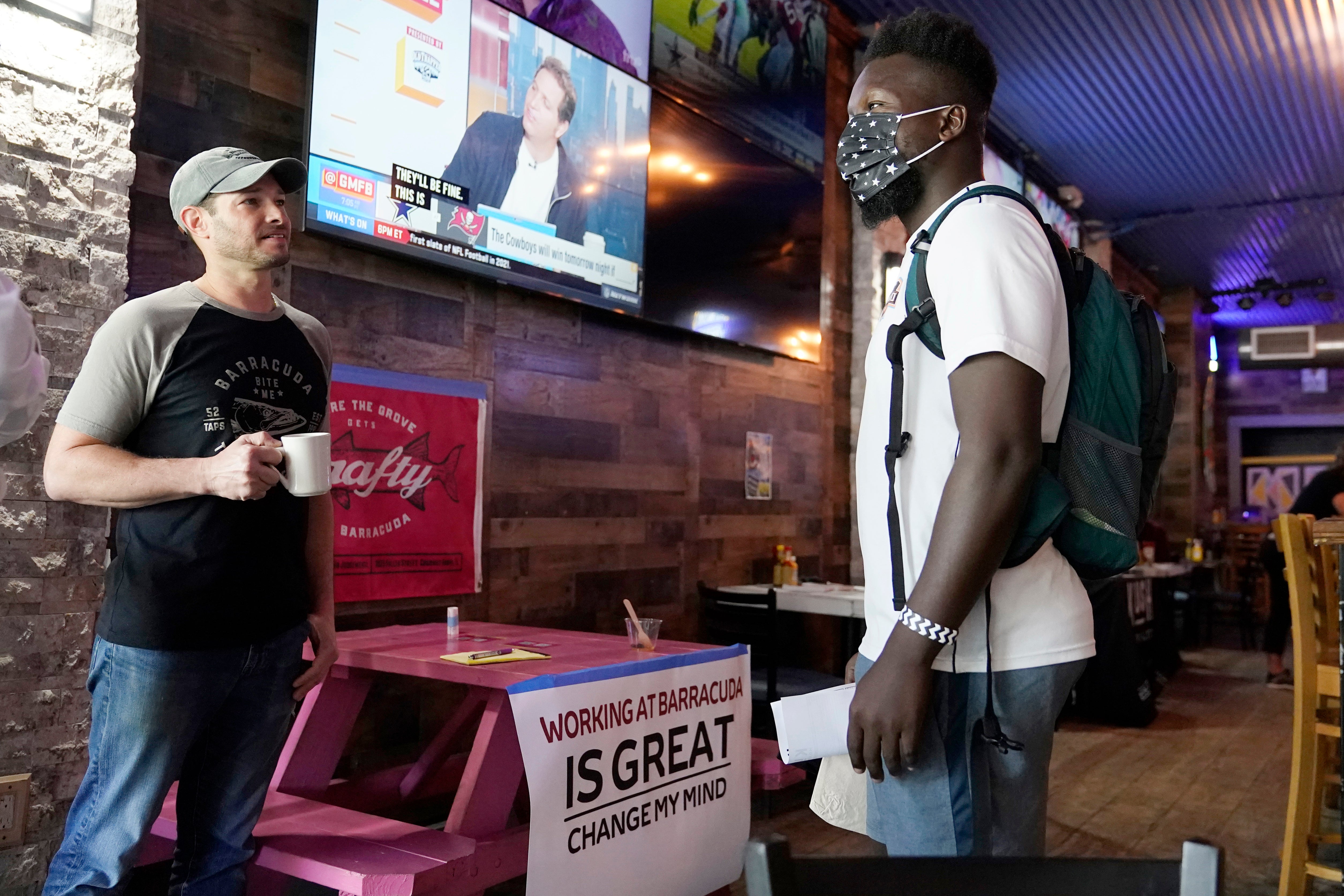US jobless claims reach a pandemic low as economy recovers
The number of Americans seeking unemployment benefits fell sharply last week to 310,000, a pandemic low and a sign that the surge in COVID-19 cases caused by the delta variant has yet to lead to widespread layoffs

Your support helps us to tell the story
From reproductive rights to climate change to Big Tech, The Independent is on the ground when the story is developing. Whether it's investigating the financials of Elon Musk's pro-Trump PAC or producing our latest documentary, 'The A Word', which shines a light on the American women fighting for reproductive rights, we know how important it is to parse out the facts from the messaging.
At such a critical moment in US history, we need reporters on the ground. Your donation allows us to keep sending journalists to speak to both sides of the story.
The Independent is trusted by Americans across the entire political spectrum. And unlike many other quality news outlets, we choose not to lock Americans out of our reporting and analysis with paywalls. We believe quality journalism should be available to everyone, paid for by those who can afford it.
Your support makes all the difference.The number of Americans seeking unemployment benefits fell last week to 310,000, a pandemic low and a sign that the surge in COVID-19 cases caused by the delta variant has yet to lead to widespread layoffs.
Thursday’s report from the Labor Department showed that jobless claims dropped from a revised total of 345,000 the week before. The number of applications has fallen steadily since topping 900,000 in early January, reflecting the steady reopening of the economy after the pandemic recession.
But the spread of the delta variant this summer has put renewed pressure on the economy and the job market. On Wednesday, the Federal Reserve reported that U.S. economic activity “downshifted” in July and August, in part because of a pullback in dining out, travel and tourism related to concerns about the delta variant.
And last week, the government reported that hiring slowed dramatically in August, with employers adding just 235,000 jobs after having added roughly a million in both June and July. Hiring plummeted in industries that require face-to-face contact with the public, notably restaurants, hotels and retail. Still, some jobs were added in other areas, and the unemployment rate actually dropped to 5.2% from 5.4%.
This week, more than 8 million people lost all their unemployment benefits with the expiration of two federal programs that covered gig workers and people who had been jobless for more than six months. Those emergency programs had been created in March 2020, when the pandemic first tore through the economy.
An additional 2 million people have lost a $300-a-week federal supplement to state unemployment benefits that expired this week. Some business owners had complained that the federal supplement made it harder to fill open jobs. Those pleas led governors in about 25 states to cancel the $300 payment early and to shut off the two emergency programs in most of those states as well. But academic research has found that so far, the early cut-offs in jobless benefits have led to only a small increase in hiring in those states.
Many economists express concern that the cut-off will lead to financial hardship because the resurgence of the pandemic will make it harder for some of the unemployed to find work. After previous recessions, emergency expansions of jobless aid ended at a time when far fewer people were still receiving benefits.